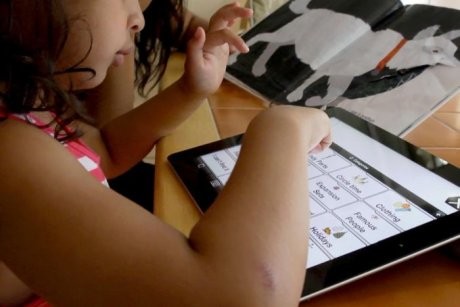
NADIA ISA
Society needs to stop considering autism spectrum disorder as a deficit and start embracing difference, a South Australian expert in special education says.
Department of Education and Child Development special educator Kathy Kleinschmidt said autism spectrum disorder (ASD) was just that; a spectrum, and many ASD children were highly functioning — if just a little bit quirky.
Ms Kleinschmidt said high-functioning ASD children should be able to attend mainstream schools, but there needed to be education and tools available to staff.
"In our classes we don't say to the kids who have glasses 'OK you have to take your glasses off and put them in a box because we're going to treat everyone the same'," she said.
"Teachers have got a big role in explaining and also demonstrating and showing that we accept difference ... equal treatment doesn't mean equality.
"It's [about] supporting the mainstream students to actually just understand what is happening and for us to celebrate difference, you know not everybody needs to think or do things the same way."
Schools need assistance to teach ASD students
But without the right assistance, integrating into mainstream schools could prove difficult for ASD students
Mother of two ASD children, Carmen Cooksley, struggled to find solutions to keep her kids happy in school.
Mrs Cooksley's son and daughter, aged 17 and 20, experienced constant hardship throughout their schooling lives, bouncing from school to school, often the victims of bullying.
"Bullying, exclusion, teasing. No mother or father wants their child to come home and ask why didn't they get invited to a birthday party," she said.
"This happened in primary school, over and over, even when the entire classroom was invited, just not your child.
"My daughter had an entire classroom of children ... exclude her from any recess and lunchtime activities ... [she] developed anxiety and depression and has been with various psychologists since then."
As a result Mrs Cooksley's daughter left high school before completing Year 8.
Acceptance goes a long way, parents say
But she agreed with Ms Kleinschmidt that accepting difference would have gone a way to improving her children's education.
"Schools need to be more open to our children, more accepting of the fact that they do not think like the majority," she said.
"Education of teachers, school leaders and students needs to take place in order for this to happen."
And that education does not have to be a difficult process.
"It's really that awareness isn't it? Giving kids information at a level they can understand, and being tolerant," Ms Kleinschmidt said.
"Just raising awareness that autism is not a deficit, it can be a huge positive because the people in our communities who have autism are those very focused people who can drill down and hopefully one day find a cure for cancer."